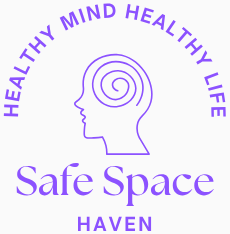In a world where everyone seems to be doing fine sharing filtered smiles, celebrating milestones, and projecting strength, it’s easy to feel like you’re the only one silently struggling. But the truth is, it’s okay not to be okay. Acknowledging your emotional pain is not a sign of weakness, it’s an act of courage and the first step toward healing.
Why We Hide Our Pain
We live in a culture that often rewards strength, independence and perseverance. There’s pressure to keep going, stay strong, and look okay no matter what. Many people fear being judged, misunderstood, or perceived as weak if they admit they’re hurting. As a result, we wear masks, hide behind busy schedules, and pretend everything is fine all while silently carrying emotional burdens that grow heavier with time.
The Danger of Pretending
When we suppress our emotions, we risk doing real harm to ourselves. Bottled-up stress and sadness don’t just disappear they manifest in other ways, such as chronic fatigue, irritability, insomnia, anxiety, or even physical illness. Unaddressed emotional pain can eventually lead to burnout, depression, or emotional breakdowns that are much harder to recover from.
Signs You Might Need Emotional Support
Sometimes the signs that we’re struggling are quiet whispers easy to overlook or brush off. Other times, they feel loud and overwhelming, demanding attention. Whether subtle or intense, these signals are your mind and body’s way of saying, “I need support.” Tuning in and responding with care can make all the difference. Here are a few common indicators that it might be time to reach out:
Feeling constantly tired, unmotivated, or emotionally drained
It’s more than just being physically tired it’s an emotional and mental exhaustion that doesn’t go away, even after rest. You may feel like you’re running on empty, lacking the energy to get through the day. Everyday tasks begin to feel like heavy burdens. This kind of fatigue can be a sign that you’re carrying more than you can manage alone.
Persistent feelings of sadness, hopelessness, or anxiety
It’s natural to feel down or anxious from time to time, but when those emotions linger for days or weeks without relief, they deserve attention. You might find yourself stuck in negative thought patterns, constantly worrying about the future, or feeling numb and disconnected. These feelings aren’t a sign of weakness they’re a signal that your emotional well-being needs care.
Isolating yourself from others or avoiding social interaction
Sometimes, when we’re struggling, we begin to pull away from the people we love. You may cancel plans, ignore messages, or avoid being around others—not because you don’t care, but because even being around people feels exhausting or overwhelming. Isolation can deepen feelings of loneliness and depression, even when it’s meant to protect you.
How to Open Up Safely
Admitting that you’re struggling takes courage. You don’t have to share everything all at once , start small. Consider sharing your feelings, confiding in a trusted friend, or joining a safe and non-judgmental space like a peer support group. If possible, connect with a trained mental health professional who can guide you through your healing journey.
At Safe Space Haven, you don’t have to pretend. You don’t have to carry the weight alone. Whether you’re ready to talk, cry, or just sit in silence, we’re here for you. Healing doesn’t begin with perfection. It begins with honesty, vulnerability, and the brave step of saying, “I’m not okay right now.” And that’s perfectly okay.
